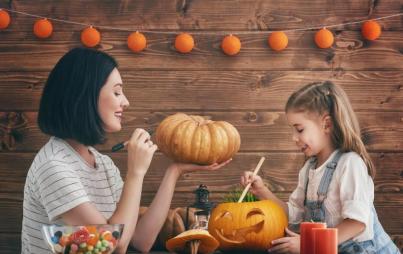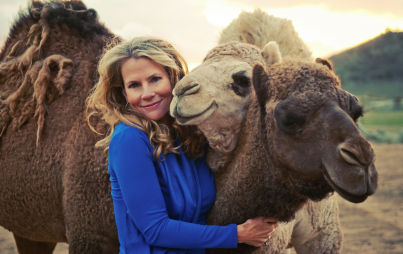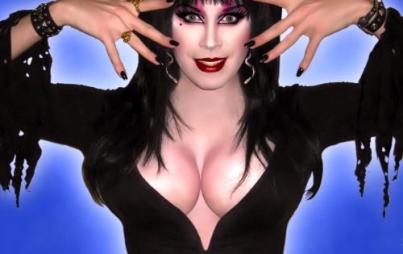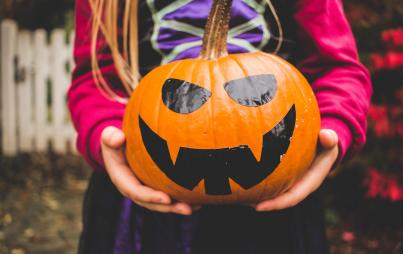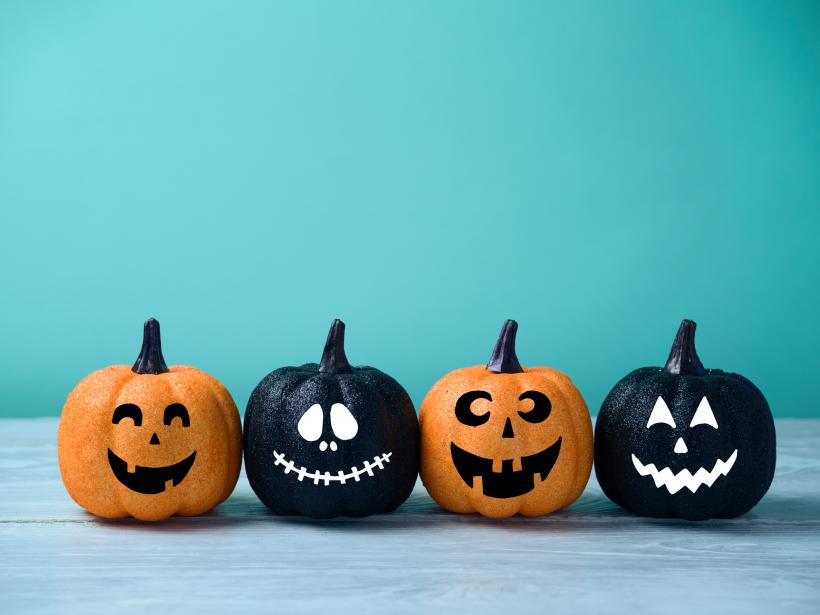
Halloween is my favorite time of year, and I think a lot of that has to do with the fact that I’m autistic.
Halloween can be an autistic person’s worst nightmare. With haunted houses and trick-or-treaters galore, it’s like an entire month or more of sensory overload. Lots of autistic people avoid large crowds, surprises, and uncomfortable clothing.
When people think of autistic people, they tend to think about our sensory avoiding behaviors. It’s a hallmark of being autistic; I refuse to eat mayonnaise on principle, simply because the texture disturbs me. I can’t listen to the sound of people chewing because it physically hurts me, like nails on a chalkboard. There’s a prevalent stereotype that autistic people go through life in the blandest way possible, from the clothes we wear to the food we eat to the events we’ll attend.
But Halloween is my favorite time of year, and I think a lot of that has to do with the fact that I’m autistic.
Most of my favorite childhood memories are during the Halloween season: The thrill of running through my neighbor’s makeshift lawn haunted house with electronic zombies screaming at me from every turn, the feeling of walking through a doorway covered in faux spider webs with plastic spider rings dangling from its silky tresses.
The season means dressing up, and while I do avoid clothing and accessories that make me itchy or uncomfortable, I absolutely love the opportunity to wear funky, whimsical outfits and don the costumes of my favorite characters. I have an affinity for weird, spooky things — like skeleton keys, old brooches, and witch hats — which makes October the perfect time to roll out my collection.
For a majority of the year, my offbeat fashion sense gets me noticed. Someone even stopped me while I was walking to my car in a WalMart parking lot to ask to take a selfie with me because they liked my outfit (a brightly colored tulle skirt, glittery bow bracelets, and a headband with lace cat ears). During Halloween, I blend in and I’m not the only one who looks like they walked right out of Luna Lovegood’s wardrobe. As a senior, I was walking across my undergrad campus one day in late October, dressed in exactly what I normally wore to class, and someone rolled down their car window to shout, “I love your costume! Are you Belle?”
I looked at my blush colored tulle skirt, which resembled gold but otherwise wasn’t aesthetically similar to Beauty and the Beast’s Belle, and said, “No, but thank you!”
As someone who is mildly face blind, Halloween is also an equalizer. I can use the fact that everyone’s wearing costumes and masks to explain my issues recognizing people, with casual lines like, “Wow, I honestly didn’t know it was you with that clown outfit on!” or, “How did you get that wig styled in such a cool updo?”
It’s less alienating to be that odd girl who wears tiny top hats on a daily basis when everyone’s busy complimenting your Halloween attire.
And when someone strikes up a conversation, our costumes are the perfect conversation starter; like many autistic people, I really dislike purposeless small talk. Halloween allows me to avoid the same old discussions about work and the weather and instead go right for something interesting: “Did you make your C3P0 costume or is it store bought?” “Are you excited about season two of Stranger Things?” “I haven’t watched Riverdale but I’ve heard it’s good. What’s it about?”
Despite the hassles of sensory overload, which are very real for me as an autistic person, I find Halloween to be the perfect time of year for sensory seeking. Most autistic people do both — avoiding sensory interaction when we’re feeling overwhelmed, and seeking out sensory interaction when we need more of it.
You Might Also Like: Things Well-Meaning Adults Say To My Autistic Child
I have always veered closer to sensory seeking than sensory avoidance, so I’m the person who wants to go inside every haunted house, who wants to go check out a creepy mansion, who wants to walk through a corn maze.
Being a part of the action helps my imagination and creativity, and leaves me feeling energized instead of drained as long as I don’t overdo it.
Scary and cryptic sensory seeking is probably my favorite, since I’ve always been obsessed with mysteries, the occult, and magic. The rest of the year, my collection of antique rusty skeleton keys doesn’t exactly win me any social bonus points, but when it’s Halloween, everyone wants to hear about the time I was digging as a kid and found an old skeleton key in my yard. I have a wide array of those stories — my friend’s haunted secret attic, my lifetime of slightly psychic moments, or the time my friend and I saw a ghost at her house.
At its core, Halloween is a time of year when people feel a little more free. We can open up about the things we love because we’re all getting dressed up, which is validating because as an autistic person, I often feel like the most passionate person in the room (and I’ve been teased about my ability to go on a long tangent about a topic I love, like fairy tales). It’s less alienating to be that odd girl who wears tiny top hats on a daily basis when everyone’s busy complimenting your Halloween attire.
Like I was saying to my girlfriend the other day when we cuddled up to watch the first Addams Family movie, Halloween is that time of year when everyone wants to be Morticia and Gomez. So if that’s who you are all the time, it’s like being the president of an exclusive Halloween club for a month.



